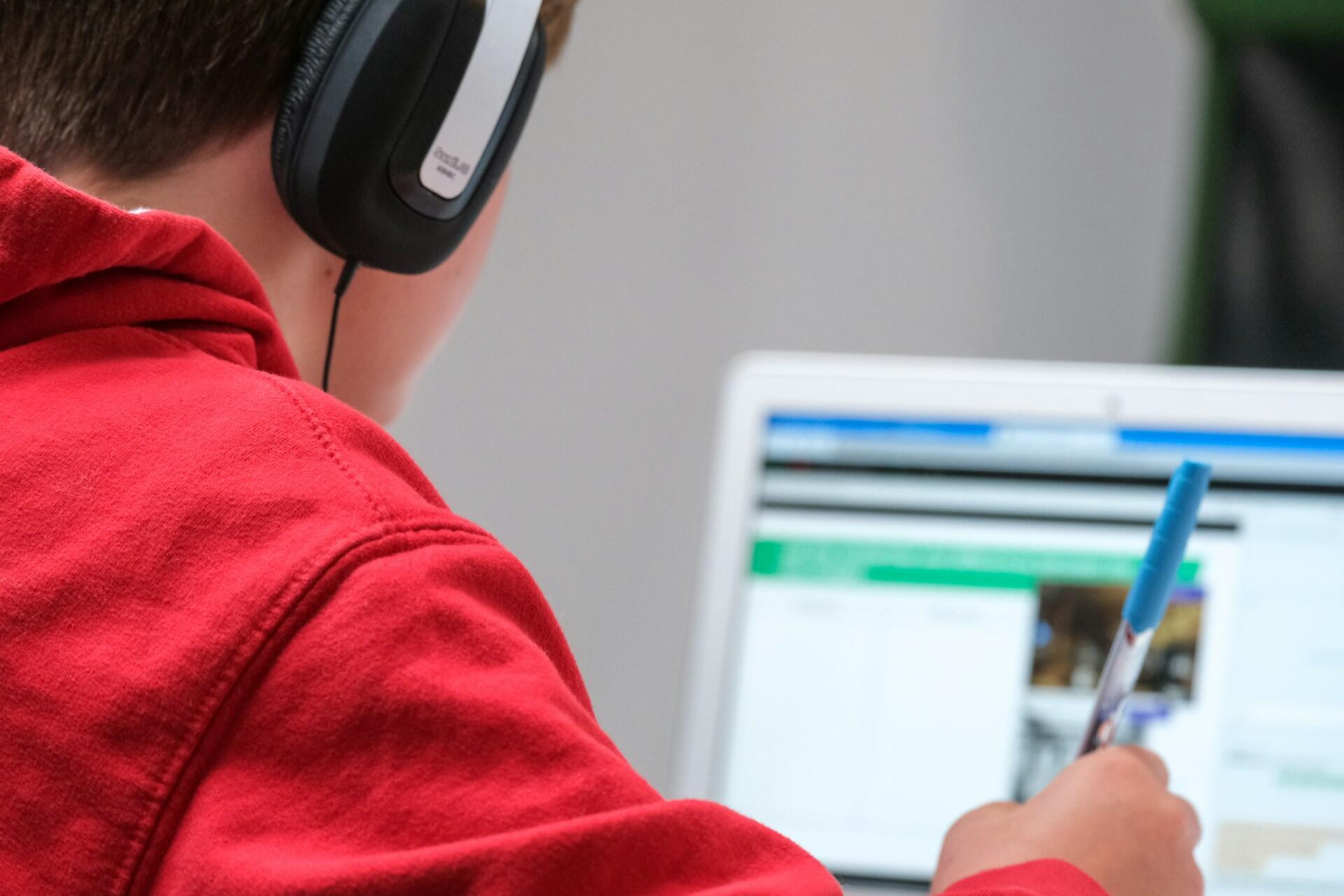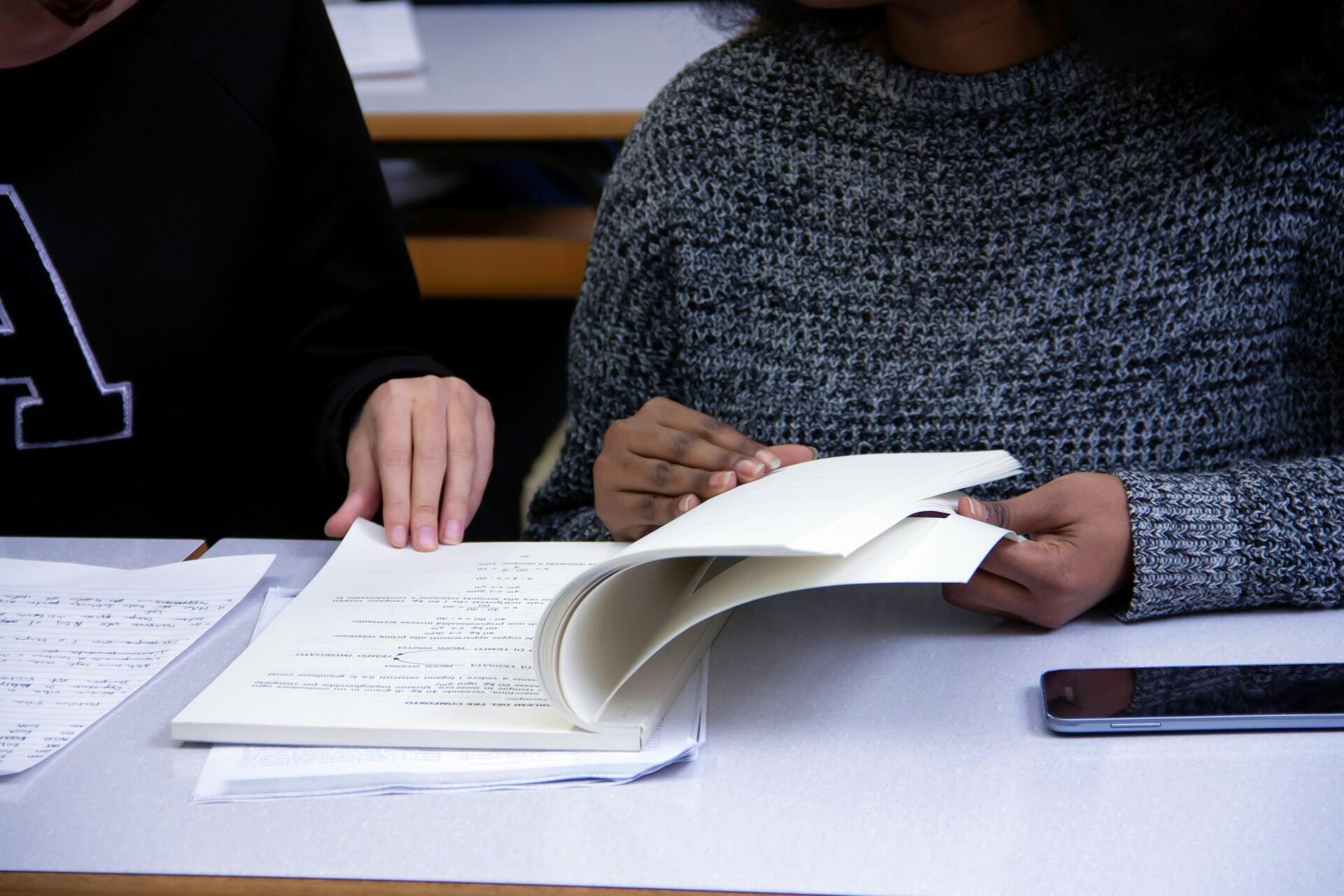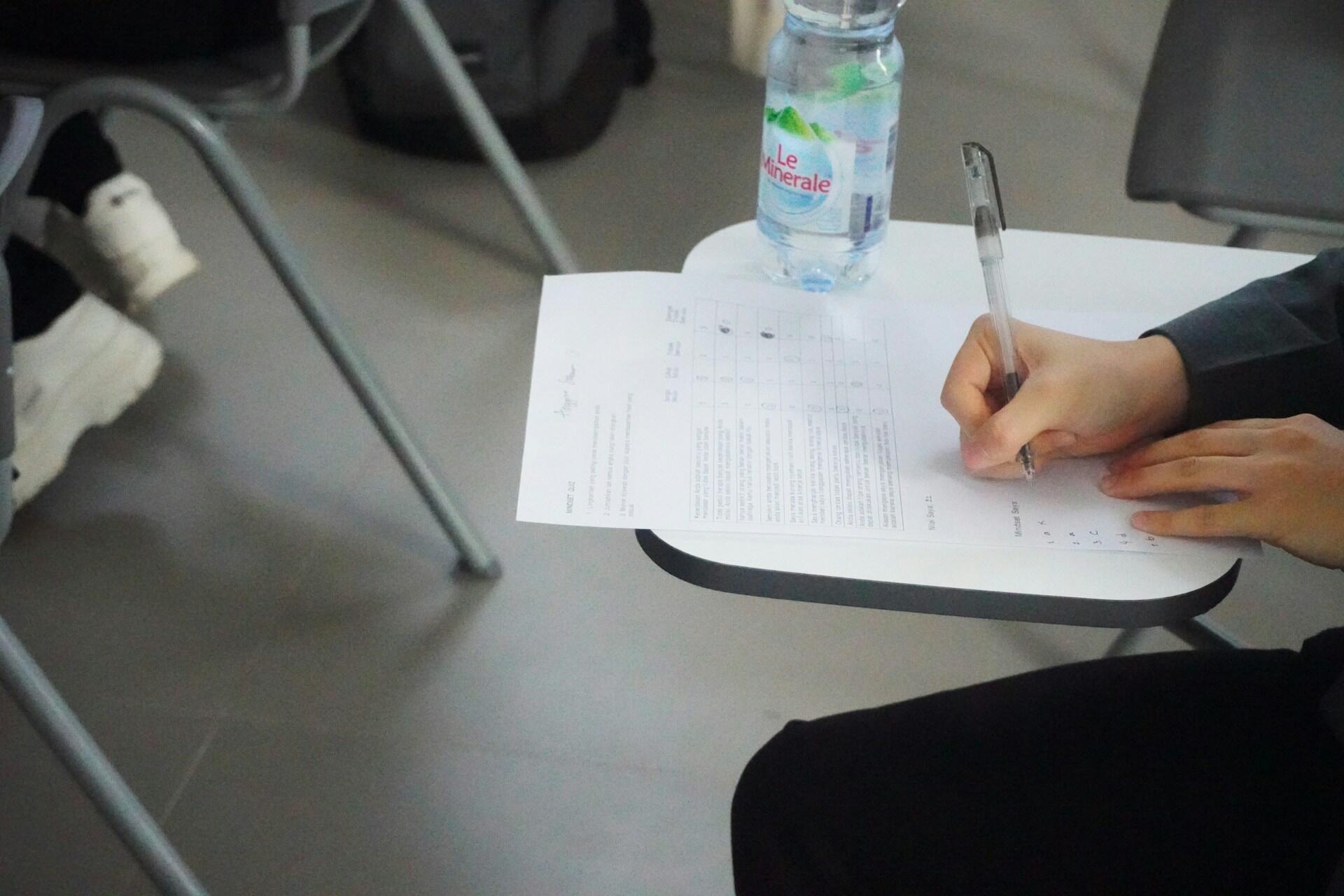The National Certificate of Educational Achievement (NCEA) was first introduced in 2002 in New Zealand and phased in over 3 years. At the end of this article, we have the full 2025 NCEA Exam timetable organised by date, but before that, we have the answers to all of the most common questions about the NCEA exams.

Understanding the NCEA: New Zealand’s National Qualification
The NCEA is the main qualification that secondary school students in New Zealand will take. It's administered and operated by the New Zealand Qualifications Authority (NZQA) as part of the national curriculum and students will take it whether they're in a school in Auckland or anywhere else in the country.
sit NCEA exams across New Zealand every year
3 main levels are taken by students in years 11, 12, and 13 respectively, though there's also the NCEA Scholarship level that you'll also see listed in the exam timetable later on in the article.
The different NCEA levels are achieved through the credits that students achieve during their examinations and assessments. There are different requirements in terms of credits, levels, and subjects for each of the NCEA levels, but you needn't worry about that too much as the best schools from Wellington to Christchurch will ensure that students are taking the right classes at the right levels.

How NCEA Grades and Credits Work
NCEA subjects are broken down into standards. These are individual components of learning like a report, experiment, or exam paper. Typically, every standard is worth between 2 and 6 credits. There are four grades given for each standard:
- Not Achieved
- Achieved
- Merit
- Excellence
To gain an NCEA certificate at any level (Level 1, 2, or 3), you generally need:
- 60 credits at that level, plus
- 20 credits from any other level
This totals 80 credits for most NCEA qualifications. There are also literacy and numeracy requirements, especially at Level 1, which you have to meet to be awarded the certificate.
Endorsements and Scholarship
Whether you're attending one of the best schools in Hamilton or a standard state school, if you achieve 50 credits at Merit or above, you can earn a Certificate Endorsement at Merit. 50 credits at Excellence earn you an Excellence endorsement. There are also Subject Endorsements for doing well in individual subjects.
Scholarship exams are an optional extra for high-achieving students. These are assessed separately and can lead to financial awards and academic recognition.
Study Tips for Preparing for Your NCEA Exams
We can't go through each subject here, but we do have some general advice that most students can use to do their best on their NCEA exams from schools in Tauranga to Hamilton.
Firstly, you should know everything you need to know about each exam. Knowing where and when it takes place is a good start, but you should be intimately familiar with the format, the kinds of questions you'll be asked, and the topics that will be on the exam.
As always, your teacher can provide you with information on this but you can also find NCEA subject resources on the NZQA website and through many third parties. However, we can't necessarily vouch for the quality or accuracy of the information on any sites other than the NZQA website so use third-party resources with caution and if you have any doubts, refer to the NZQA.

Past papers and practice papers are an excellent way to understand which topics will be featured on the exam that you'll take later on in the year and making flashcards can help with memorising tricky topics and concepts.
- Photo ID (e.g., school ID or passport)
- Admission slip (issued by your school)
- Pens (black or blue), pencils, ruler, eraser
- Calculator (if allowed for the subject)

Where Students Can Get NCEA Exam Support
There are plenty of options out there for students. They can work with their peers when it's time to study or ask for help from their parents, teachers, or even a private tutor.
Whether you're at school in Christchurch or Tauranga, you can look for private tutors specialising in specific subjects and exams, the NCEA qualifications in general, or study skills to help them get the most out of the time they spend studying or revising for their exams.
On the Superprof website, for example, there are private tutors across New Zealand and all over the world who can help students of all levels and ages.
Just search for the subject or skill you'd like to get tutoring for and start browsing the tutors' profiles to see exactly what they teach, how much they charge, and whether they offer the first lesson for free. You can even find tutors to help you with your revision technique.

These free lessons are a great way to test out a few potential tutors so you can be confident that you've chosen the right one!
- Over 160,000 students sit NCEA each year in New Zealand
- 3 levels of NCEA over years 11–13
- Over 100 different exam subjects offered
- Scholarship exams are taken by around 3–5% of students
Study Resources for NCEA Students
For any student, starting with the NZQA website is a good idea. Here, you can find past exam papers, exemplars, assessment schedules, and subject-specific guidelines.
You can also speak to your school about revision booklets, online flashcards, and apps. They may even run study sessions or workshops in the lead-up to exam season so make sure to take advantage of these.
You can also work with a private like those on the Superprof site. With most offering the first session for free, you can try different tutors out before choosing the one that's right for you, your learning style, and your budget. With tutors in different subjects and tutors specialising in NCEA or study skills, you're bdund to find one that's right for you.
Remember that there's no individual resource that works for everyone and instead you should look to combine different resources into effective study routines.
NCEA Level 1, 2, or 3: Which One Matters Most?
Naturally, the higher the level, the higher the qualification. However, there are other factors to consider, whether you're in a top school in Christchurch or elsewhere in the country.
For one, the NCEA Level 2 will be the highest level that most students have if they apply for university. This isn't to say that students going to university won't take NCEA level 3 exams, but they'll take them after having already applied for university.
University applications take place halfway through students' final year so they won't have taken their NCEA Level 3 exams by this point. In many ways, this makes the NCEA Level 2 more important than Level 3. However, every student should be trying to get the best possible results they can in every exam they take so don't think that just because your Level 2 results were good, you can go easy for the Level 3 exams.

No matter how important the exam is, you have to remember and learn how to manage your stress. You can't get rid of it altogether, but you can manage it.
Here are some tips for studying.
2025 NCEA Exam Dates
Most of the NCEA Exams take place between November and December (from 4th November to 28th November in 2025). You might also be interested in the school holidays and term dates for 2025.
There's a morning and afternoon session for exams with the morning session beginning at 9:30 am and the afternoon session beginning at 2:00 pm.
assessed across Levels 1–3 and Scholarship in 2025
The time the exams take place is according to the level and subject, naturally, so be sure to check both because the same subjects will appear several times throughout the timetable at different levels.
You don't have to memorise the whole schedule or the term times and you can refer back to it here or on the NZQA website, but you might want to work on your memory as part of your revision.
Complete 2025 NCEA Exam Timetable
All information is accurate as of February 2025 as sourced from the NZQA website.
NZQA Website – Find past papers, subject guides, and updates
StudyIt – Student-friendly NCEA support for English, Maths, and Science
Your school's internal portal and teachers
You can use these dates to help you plan your revision schedule.
| Date | Session | Level 1 | Level 2 | Level 3 | Scholarship |
|---|---|---|---|---|---|
| Tue 4 Nov | AM | Mathematics & Statistics | Dance | Classical Studies | |
| Tue 4 Nov | PM | Latin | Japanese | Making Music, Spanish | Statistics |
| Wed 5 Nov | AM | English | |||
| Wed 5 Nov | PM | Geography | Earth & Space Science | ||
| Thu 6 Nov | AM | English | Latin | ||
| Thu 6 Nov | PM | Chinese | History | French | |
| Fri 7 Nov | AM | Chemistry | Accounting | ||
| Fri 7 Nov | PM | Accounting | Biology | ||
| Mon 10 Nov | AM | French, Spanish | Lea Faka-Tonga, Te Reo Māori | Calculus, Samoan | |
| Mon 10 Nov | PM | Commerce, Korean | Ag & Hort Sci, Chinese, German | Media Studies | |
| Tue 11 Nov | AM | English | Physics | ||
| Tue 11 Nov | PM | Gagana Tokelau | Dance | Biology, Art History | |
| Wed 12 Nov | AM | Ag & Hort Science | Chemistry, Drama, Geography | ||
| Wed 12 Nov | PM | Korean, Cook Islands Māori | Drama, Dig Tech, Samoan | Psychology | |
| Thu 13 Nov | AM | Math & Stats | Art History | Statistics | Drama |
| Thu 13 Nov | PM | History | Physics | Accounting | Ag & Hort Science |
| Mon 17 Nov | AM | Te Reo Māori | French | Latin, Psychology, Te Reo Rangatira | Chemistry |
| Mon 17 Nov | PM | Japanese | Biology, Economics | ||
| Tue 18 Nov | AM | Science | History | Physics | Te Reo Rangatira |
| Tue 18 Nov | PM | Digital Tech, Ag & Hort Sci | Media Studies | ||
| Wed 19 Nov | AM | Chinese | Te Reo Rangatira | Lea Faka-Tonga | English |
| Wed 19 Nov | PM | Social Studies | Classical Studies | Art History | Economics |
| Thu 20 Nov | AM | Physics | Earth & Space Science | Media Studies, Te Reo Māori | Calculus |
| Thu 20 Nov | PM | Vagahau Niue | Education for Sustainability, Samoan | Earth & Space Science | Chinese |
| Fri 21 Nov | AM | Reo Māori Kūki ‘Āirani | Music Studies, Spanish | ||
| Fri 21 Nov | PM | Geography | Music, History | ||
| Mon 24 Nov | AM | Gagana Sāmoa, Japanese | Geography | ||
| Mon 24 Nov | PM | German | Earth & Space Science | Religious Studies | |
| Tue 25 Nov | AM | Chemistry & Biology | Home Economics | Classical Studies | Te Reo Māori |
| Tue 25 Nov | PM | Lea Faka-Tonga, German | Home Economics, Digital Tech | ||
| Wed 26 Nov | AM | Religious Studies | Social Studies | French, Japanese | |
| Wed 26 Nov | PM | Health Studies | Business Studies | Health | |
| Thu 27 Nov | AM | Economics | Korean | ||
| Thu 27 Nov | PM | Health | Business Studies | ||
| Fri 28 Nov | AM | Digital Tech, Spanish | Cook Islands Māori, Social Studies | German |
Now that you know when the exams are, don't forget to check out our favourite study tips!
Summarise with AI:











